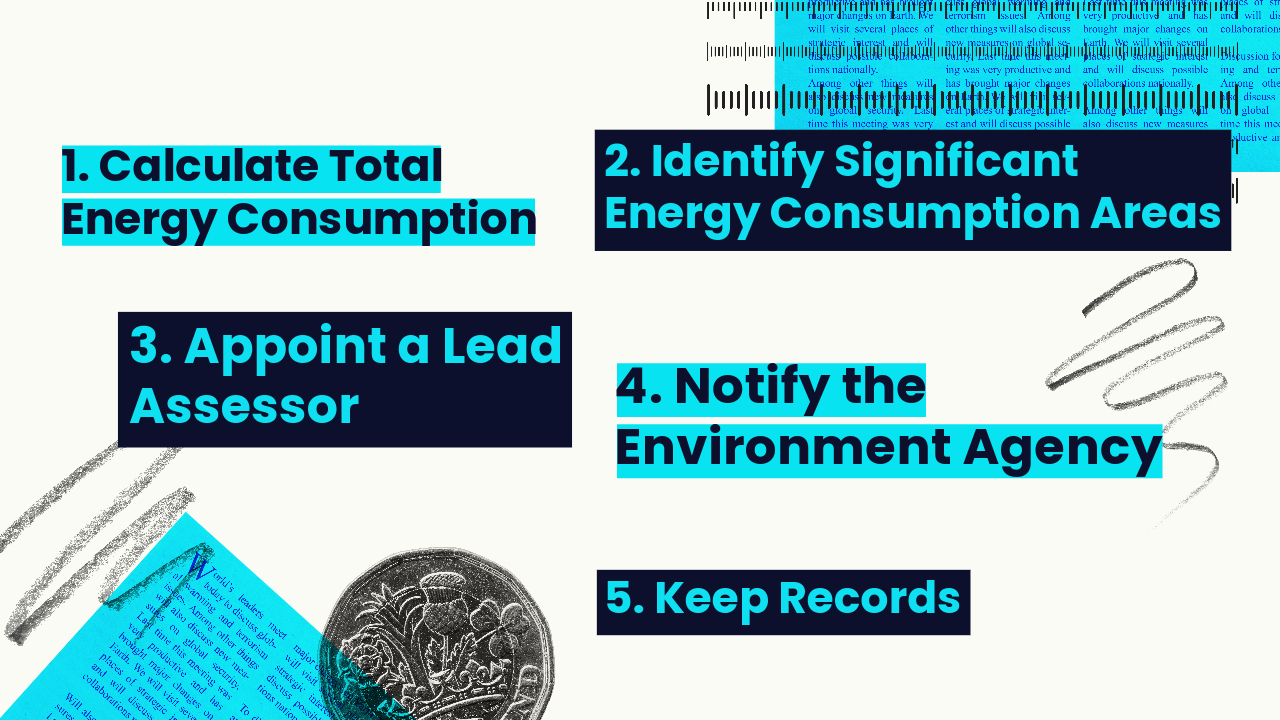The Energy Savings Opportunity Scheme (ESOS) in the UK: A Comprehensive Overview of Phase 3 and Future Developments
Author: Harrison Gash
The Energy Savings Opportunity Scheme (ESOS) is a pivotal initiative in the United Kingdom aimed at encouraging organisations to identify and implement cost-effective measures to reduce energy consumption. This mandatory scheme targets large businesses and is structured to enhance energy efficiency, ultimately contributing to the UK’s broader sustainability goals. This article will delve into the key aspects of ESOS, focusing on Phase 3, the recent government response to proposed improvements, and the scheme’s future trajectory.

ESOS Qualification and Key Requirements
To qualify for ESOS, organisations must meet specific criteria outlined by the government. As of December 31, 2022, Phase 3 qualification closed, and participating organisations must adhere to the compliance requirements. Qualification criteria include employing 250 people or more or having an annual turnover exceeding £44 million and an annual balance sheet total exceeding £38 million.
Phase 3 Compliance and Notification
ESOS participants are mandated to submit their notification of compliance by June 5, 2024, an extension from the previous deadline of December 5, 2023. This notification is a crucial step in the compliance process, signalling an organisation’s commitment to fulfilling ESOS requirements. Additionally, the government is set to implement amended legislation before December 5, reinforcing the importance of adherence to new regulations.
Government Response and Proposed Improvements
In response to a consultation seeking views on strengthening ESOS, the UK government announced several proposals to enhance the scheme’s effectiveness:
Improved Audit Quality and Standardisation:
The government aims to standardise reporting requirements to enhance the quality of audits, ensuring consistency and reliability in identifying energy-saving opportunities.
Inclusion of Net Zero Element:
Acknowledging the urgency of addressing climate change, the proposal includes a net-zero element in audits. This addition aligns ESOS with broader environmental goals and emphasises the significance of reducing carbon emissions.
Public Disclosure of Recommendations:
ESOS participants may be required to publicly disclose high-level recommendations. This transparency measure aims to foster accountability and encourage businesses to prioritise energy-saving measures.
Mandatory Reporting on Next Steps:
ESOS reports must now provide more detailed information on the next steps organisations plan to take in implementing recommendations. This ensures a proactive approach to energy efficiency.
Energy Intensity Metric in ESOS Reports:
The addition of an energy intensity metric in ESOS reports provides a more nuanced understanding of energy consumption patterns, aiding in the identification of targeted efficiency measures.
Setting Targets or Action Plans for Phase 4:
Participants are now obligated to set targets or action plans following the Phase 3 compliance deadline. This forward-looking approach establishes a framework for continuous improvement and sustainability.
Data Collection for Compliance Monitoring:
The government proposed collecting additional data for compliance monitoring and enforcement, reinforcing the commitment to stringent oversight and evaluation of ESOS compliance.
Future Developments and Stakeholder Collaboration
While certain proposals are slated for implementation in Phase 3, others, such as the net-zero audit element, will be introduced in Phase 4. Stakeholder collaboration and consultation with devolved administrations will play a crucial role in shaping the detailed implementation of these changes.
Feedback and Response
The consultation process garnered 89 responses, with various stakeholders providing input, including consultants, ESOS participants, trade associations, lead assessors, professional bodies, and others. The widespread support for the proposed improvements reflects a collective commitment to maximising energy and carbon savings from businesses participating in ESOS.

ESOS Assessment Process and Approved Lead Assessors
Organisations participating in ESOS must follow a structured assessment process:
1. Calculate Total Energy Consumption:
Determine the total energy consumption across the organisation.
2. Identify Significant Energy Consumption Areas:
Identify areas with significant energy consumption that warrant attention.
3. Appoint a Lead Assessor:
Choose a lead assessor from an approved list of registers, including associations like the Association of Energy Engineers, CIBSE, Elmhurst Energy Systems, Energy Institute, Energy Managers Association, and others.
4. Notify the Environment Agency:
Notify the Environment Agency of compliance with ESOS obligations.
5. Keep Records:
Maintain comprehensive records of the energy assessment process.
ESOS Penalties and Enforcement
ESOS enforcement includes penalties for breaches, with various categories and corresponding maximum penalty amounts outlined in the ESOS Regulations. Breaches include failure to notify, maintain records, undertake an energy audit, comply with a notice, and providing false or misleading statements. The government applies discretion in penalty imposition, considering the nature of the breach and potential impact on the scheme’s integrity.
To Conclude
ESOS stands as a crucial instrument in the UK’s commitment to enhancing energy efficiency and achieving sustainability goals. Phase 3 brings about significant changes, with improved audit quality, a focus on net-zero elements, and increased transparency. The collaboration between the government and stakeholders, coupled with continuous refinement of the scheme, ensures that ESOS remains a dynamic and effective tool in the pursuit of a greener and more energy-efficient future. Businesses subject to ESOS should remain vigilant in adhering to compliance requirements, recognising the integral role they play in driving positive environmental change.

